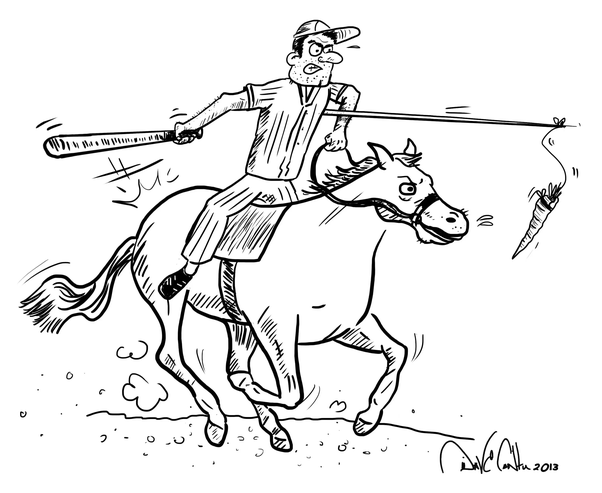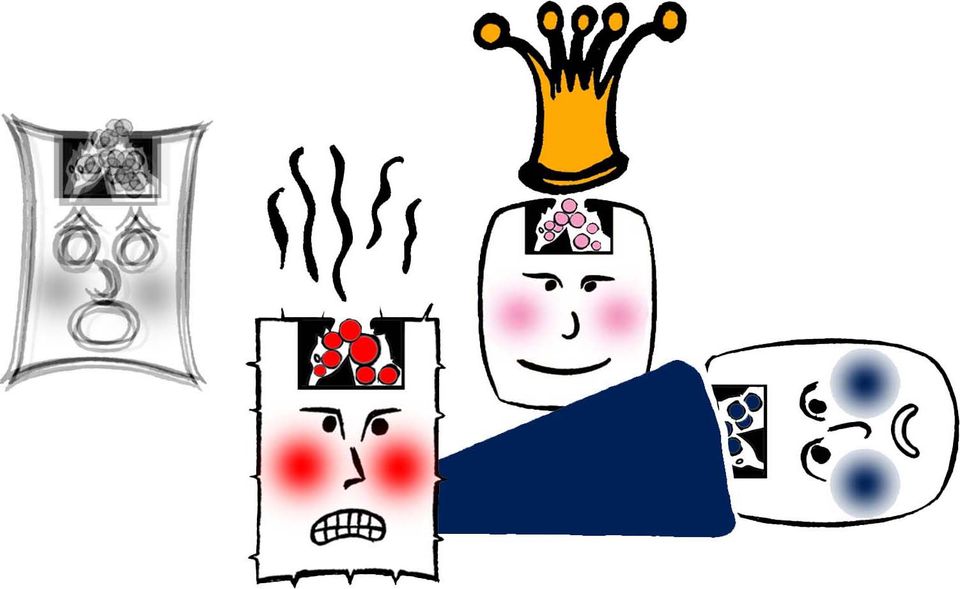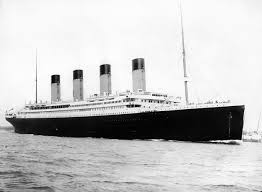Stress as Motivation
| Creative Motivation
|
Motivation by Stress |
Desire or Compulsion? | Being Led Astray |
Carrot and Stick
^ Motivation by Stress
Courage and fear can motivate us, but pull us in opposite directions.
Fear makes us run and hide, while courage grants us the freedom of fearlessness.
A similar contrast is found with two equally familiar forces; love and anger. Anger pushes us to be hostile, while love lets us be at one with the world and with ourselves.
This website - like the accompanying book The Creative Self
- examines how forces like fear
and angersabotage our true, creative nature and will... and rule us more than truly motivate us.
^ Desire or Compulsion?
Desire can be an invaluable emotion, but when powered by stress it becomes as bullying as fear
and
anger.
Compulsive desire
is the forward gear to fear's reverse, and makes us desperate for the things that fear makes us scared of losing.
Compulsive desire can make us obsessed over - and addicted to - given "desire objects”. By these "objects" we can find ourselves so driven to distraction that we deceive, cheat or trample our way towards making them ours.
Steered by compulsive desire, our motivation becomes compulsive: we become compelled
to obey its instructions (even if this all operates outside our conscious awareness). Effectively, our actual free will becomes sidelined and we come to resemble a remote-controlled toy.
The outcome, here, is ultimately the same whatever the "stress forces" that steers us: the loss of our true, creative self.
^ Being Led Astray
When we hand over control to "stress forces" like compulsive desire, disaster will follow sooner or later.
An example of this was the passenger liner Titanic. Titanic's owners, White Star Line, were so desperate for "success" and fame that they leant on the skipper, Captain Smith, to break the speed record for the crossing - by taking a shortcut close to the North Atlantic ice.
^ Carrot and Stick
"Carrot and stick" is one of the most popular techniques by which we find ourselves "motivated". "Carrots" - cash bonuses, for example - are dangled as rewards for "good performance". Meanwhile, stick -
a financial penalty, perhaps - is applied to those who fall short of expectations.

Transmitted through "stress forces" like
compulsive desire
(carrot) and
fear
(stick), carrot and stick comes at great cost to our creativity and even safety.
Carrot and stick gets treated as a source of motivation, while its real focus is on imposing control and conformity. Indeed, in the psychological literature it is referred to as the so-called controlled
kind of motivation.
It's ironic, therefore, that because it bypasses our true, creative self, it brings things out
of control.
Besides Titanic, we can look at the example of the 2008 financial crash that followed a runaway lending boom, one fuelled by an explosive sales bonus culture.
Freedom from the Stressed Self
Find out about the "Four Steps To Freedom from Stress"
[Nb this website is not a replacement for professional help where needed.]


